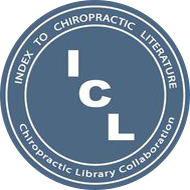| Abstract/Notes |
Despite many years of research, the cause of infantile colic is as elusive as ever and no distinct cure has emerged. Evidence is reviewed that colic may be the clinical expression of physiological dysregulation at the brainstem level, particularly of the vestibular and autonomic systems. It is argued that occipital/upper-cervical muscular tightness acquired at birth may induce aberrant proprioceptive flow into the vestibular system and, indirectly, the medial cerebellar cortex. Diminished inhibitory modulation of the vestibular nuclei by the medial cerebellum may provide a mechanism of how vestibular dysregulation/ hyperactivity may arise and subsequently be propagated downstream to also involve the autonomic systems. Treatment aimed at relaxation of tight sub-occipital musculature may restore regular proprioceptive flow and facilitate normalization of the inhibitory cerebellar modulation of the vestibular nuclei. From an evolutionary perspective the high prevalence of infantile colic may be an inherent aspect of the human condition and may be the price we pay for our upright stance, bipedal gait and difficult birth process as compared to the great apes. The focus of future research should be broadened to include the concomitant symptoms of colic that point to brainstem involvement.
Author keywords: Infantile colic, brainstem dysregulation, sub-occipital dysfunction, proprioception, sensory neuromodulation, vestibular, autonomic.
This abstract is reproduced with the permission of the publisher. Click on the above link for free full text. Online access only. PDF
|
